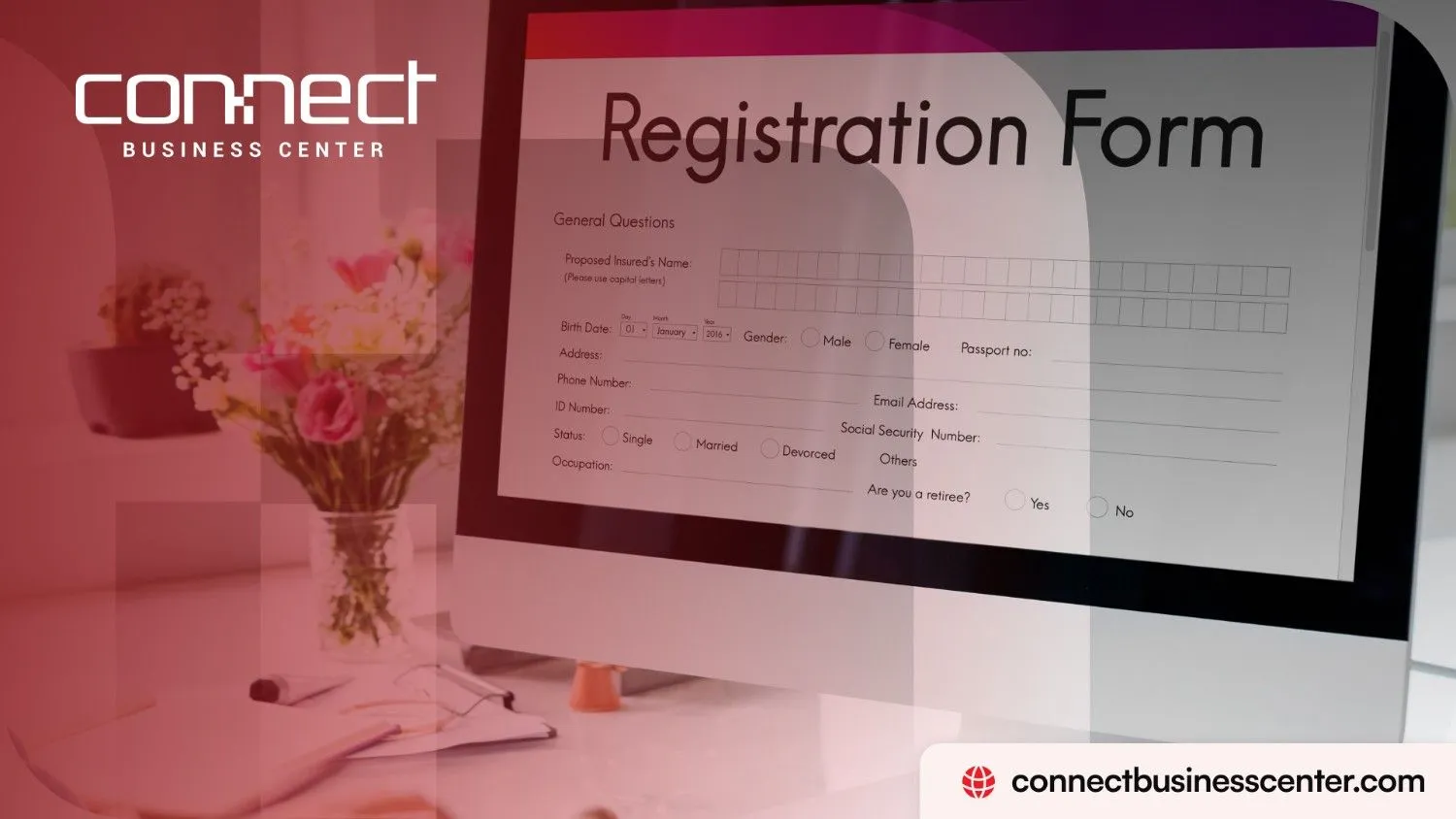Dubai has been the guiding light for all the aspirants. Especially for those who want to secure a spot in the surging world of businesses and economic dynamics. This requires proper attention and guidelines to follow. If you are planning an e-commerce business in Dubai, you have come to the right place. This article contains all the information you need in one place.
Importance of Starting an E-Commerce Business in Dubai
Aspiring business owners have a fantastic chance thanks to Dubai’s expanding e-commerce industry. Here’s a summary of the main causes:
Business Thriving: Due to its strong regional positioning, high internet penetration rate, and tech-savvy customer base, Dubai has a thriving e-commerce business that is expanding quickly.
Strategic Location: Being at the intersection of international trade, Dubai facilitates supply chain management and expands your consumer base.
Government Support: Through expedited procedures, tax breaks, and free zones with exclusive incentives, the government of Dubai actively supports e-commerce.
Business-Friendly climate: Setting up and running an e-commerce company is made simpler in Dubai’s stable, open, and low-bureaucracy business climate.
Tax Benefits: Depending on the mainland or free zone where you have decided to locate your firm, you may be able to take advantage of corporate income and VAT tax deductions.
Legal Requirements and Regulations for Starting an ECommerce Business in Dubai
Before initiating a business setup, one must align with the standards of legal laws and regulations. As stated below, these measures will prevent any chaos that you might encounter and keep the process untroubled.
Business Licensing
It’s thrilling to launch an online store in Dubai, but the first step is getting a company licence. There are two primary options: a free zone (easier establishment, complete ownership, but may limit who you sell to) or the Dubai mainland (access to the global UAE market but more difficult). Regardless of the option you select, you must specify your business’s operations, choose a name, and get all required permits.
Once you have your documentation together, including copies of your passport and a business plan, apply for the licence. If working on the mainland, fees may include a service agent. Otherwise, they may vary. Think about getting expert assistance to handle the details!
Legal Structures
When starting an online store in Dubai, one of the most important steps is selecting the appropriate legal structure. Here’s a condensed explanation:
Mainland:
- Possibility of having access to the whole UAE market.
- more difficult setup procedure.
- need, unless you’re a UAE citizen, a local service agent (sponsor).
- Sole Proprietorship (for smaller firms) and Limited Liability Companies (LLCs) are popular company forms.
- Unrestricted Area:
Free Zones:
- easier to set up and faster.
- permits foreign ownership of 100%.
- provides tax advantages.
- may limit direct sales to customers in the UAE.
- A common form is the Free Zone Company.
- The optimal decision is contingent upon your target market, ownership structure, and business objectives. Before choosing, think about things like setup convenience, ownership constraints, and tax ramifications.
Compliance and Taxation
E-commerce may operate in a business-friendly atmosphere in Dubai, but it’s important to understand taxes and compliance. Here’s a condensed overview:
Value Added Tax, or VAT, is required for the majority of e-commerce companies operating in Dubai if their yearly revenue is above AED 375,000. The VAT rate is typically 5%. VAT on sales must be collected and reported to the appropriate authorities.
corporation tax (for mainland Dubai): Although rare, businesses that generate more than AED 375,000 in taxable revenue in the mainland Dubai may be liable to a 9% corporation tax beginning in 2023.
Customs Duties: Amounts up to 5% of the product’s value may be charged on imported products.
Benefits of Free Zones: Importing and exporting commodities may be subject to special tariffs, although free zones frequently grant tax exemptions
Setting Up Your E-Commerce Business in Dubai
Get your E-commerce business set up in the diverse city of opportunities. Start with the foolproof plan and follow each step for a successful outcome.
1. Business Plan
Your business strategy for Dubai e-commerce serves as your road map to success. Your concept, target market, and competitive edge should all be outlined. Examine the regulations and choose, keeping in mind any restrictions, between a free zone for quicker creation and foreign ownership and a mainland license for complete market access. Consider structuring your company as a free zone or limited liability company. Add the price of licences, visas, and maybe a service agent. Remember to budget for recurring expenses like marketing and rent.
Lastly, be aware of your tax responsibilities, including potential corporation tax and VAT (for continental areas). You’ll be in a good position to start your successful e-commerce firm if you have a well-thought-out plan and are familiar with the business climate in Dubai.
2. Choosing a Business Name
Picking the perfect name for your Dubai e-commerce business is like choosing its identity. It should be catchy, memorable, and reflect your brand. Make sure the name is available as a domain name and trademark to avoid future complications. Consider translating the name into Arabic to reach a wider audience, but ensure it still sounds good in English.
3. Registering Your Business
Registering your Dubai e-commerce business is like getting your official birth certificate in the business world. The first step is deciding where you’ll operate: the mainland for full UAE market access (with a more complex setup) or a free zone for a faster process and complete ownership (potentially limiting your customer base).
Next, choose your business activity, pick a unique and available name, and secure any necessary approvals. Finally, submit your application and required documents (like passports and business plans) to the relevant licensing authority. T
4. Develop Your E-Commerce Website
Your digital storefront is your Dubai e-commerce website; therefore, it must be both aesthetically pleasing and easy to use. The main points are as follows: Select an e-commerce platform based on your needs and financial constraints. Create a website that is easy to use, with excellent product descriptions and intuitive navigation.
In light of the fact that many people purchase on their phones, don’t overlook mobile responsiveness. Establish safe payment mechanisms to win over customers’ confidence. You may draw clients to your Dubai e-commerce company and win their loyalty by designing an eye-catching and useful website.
5. Establish a Payment Gateway
You must have a secure payment gateway for your Dubai online store. It serves as a link between your website and the wallets of your clients. The solution is as follows: Select a trustworthy payment gateway that works well with your website and accepts the most commonly used payment options in the area, such as credit cards, debit cards, and maybe cash on delivery. Ascertain that the gateway is safe and safeguards the financial information of the users.
6. Support for Customers and Logistics
Delivering exceptional customer service and logistics is crucial for your Dubai e-commerce business. Build trust and loyalty by offering responsive and helpful customer support. This could include multiple channels like email, phone, or live chat. Also, partner with a reliable logistics company to ensure efficient delivery of your products across the UAE and potentially beyond. Consider offering multiple delivery options to cater to different customer needs.
7. Get your trade license
Getting your trade licence is akin to receiving formal approval to run your Dubai e-commerce company. The procedure is choosing where to locate your business: a free zone offers speedier setup and foreign ownership (perhaps with restrictions) or the mainland for complete market access (more complicated). After deciding on a site, you must specify your line of business, choose a catchy moniker, and obtain the necessary permits for your particular sector.
8. Get Import-Export Code (IEC)
While not required for all Dubai e-commerce enterprises, an Import-Export Code (IEC) is beneficial if you intend to:
Sell goods abroad: An IEC streamlines customs processes if you want to export your goods or obtain items from sources outside the United Arab Emirates.
Increased authority regarding imports: You can import goods directly through an IEC rather than through a middleman. Applying for an IEC requires going through Dubai Customs. Standard business documentation, copies of your passport, and verification of your office premises are usually needed for the process.
Conclusion
Starting an online store in Dubai may be a thrilling journey! The secret is to proceed cautiously. Based on your ownership objectives and target market, first decide on your business structure and location (free zone or mainland). Clearly define your goods, target market, and competitive advantage in your company strategy. Get your trade license and any other required licenses. Create an easy-to-use online store with a safe payment gateway.
Assist a reputable logistics provider to guarantee prompt delivery. Lastly, to foster loyalty and trust, give top priority to providing outstanding customer service. The flourishing e-commerce sector in Dubai has a multitude of prospects for business owners. In this vibrant and business-friendly atmosphere, you can make your e-commerce vision a reality with careful strategy and execution. Thus, advance and give your business idea a practical approach!
FAQs for E-commerce business in Dubai
What do you need to get started with an online company in Dubai?
You need to choose a company model or activity, a jurisdiction, a trade name, and get the right e-commerce permit.
What kind of license does an online retailer need in Dubai?
The e-commerce license is required to set up an online retailer business in the Freezone or Mainland, Dubai.
How much does it cost to set up an online business in Dubai?
The costs of setting up a digital store include getting an e-commerce license, building the online store website, promoting it, handling shipping and deliveries, procuring items, and running the business.
How long does it take from applying for a license to being active?
Some Free Zones may provide you with the license in two to five business days. Setting up a bank account and a website usually takes between two and four weeks.
Do e-commerce enterprises in the UAE need to follow specific regulations?
The UAE Federal Decree and Consumer Protection Laws are two essential rules that require fair prices, easy returns, and safe data.


